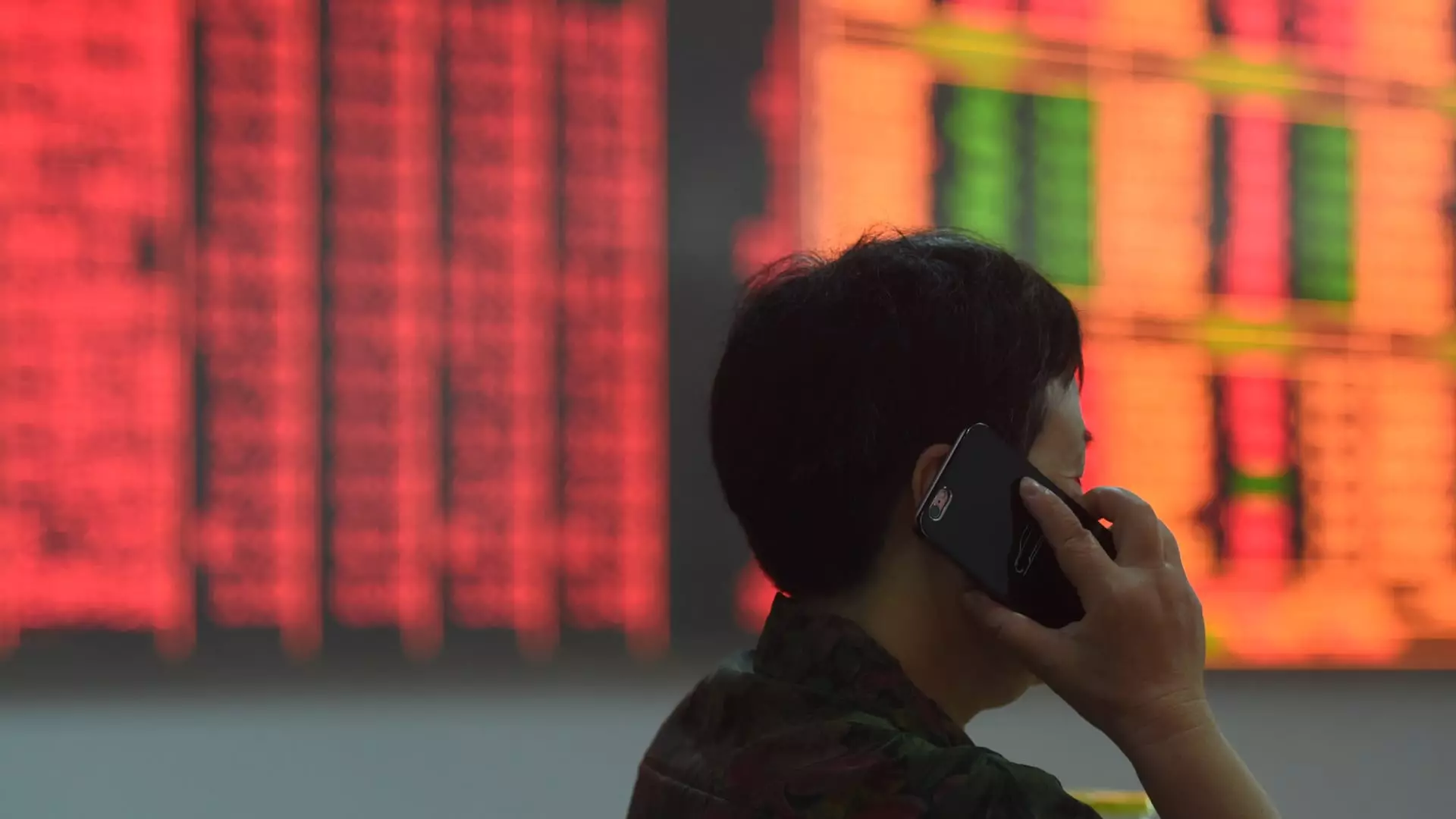Recent developments in China’s economic policy have provided a temporary uplift to market sentiment, albeit without addressing the numerous entrenched challenges facing the nation. The Shanghai Composite Index soared to its highest level in three months, prompted by reports of a Politburo meeting chaired by President Xi Jinping, where officials discussed strategies to halt the ongoing decline in the real estate market and emphasized the need for enhanced fiscal and monetary policies. While the meeting did bring some encouraging signals, such as the endorsement of previous interest rate cuts by the People’s Bank of China, analysts argue that mere political gestures may not suffice to rekindle long-term economic growth.
Analyst Ting Lu from Nomura remarked that while the intention behind these high-profile meetings is to stimulate market confidence, a substantial overhaul of the policy landscape is vital to tackle deeper systemic issues. The current strategy appears to be a “shock and awe” approach aimed at re-energizing markets; however, without concrete policy frameworks and actions, it risks resembling a band-aid solution on a larger wound.
China’s economy, the world’s second-largest, is currently grappling with a real estate slump that has lasted for four consecutive years, significantly stifling growth. Recent data indicates that retail sales have barely surpassed 2% growth, while industrial profits remain stagnant. The predicament within the real estate sector has far-reaching consequences, not only for housing but for overall economic confidence. Lu highlights that efforts to stabilize this sector must be prioritized, especially as soaring property debt threatens the financial stability of both developers and homeowners.
Moreover, the potential for additional stimulus measures, while promising, is not expected to exceed 3% of China’s annual GDP. Therefore, there is a prevalent belief among analysts that the specifics of any forthcoming stimulus are critical. A hastily designed stimulus initiative could lead to a lackluster impact on economic recovery—essentially a missed opportunity to lay the groundwork for sustainable growth.
Despite some positive policy announcements, skepticism lingers among institutional investors regarding the effectiveness of these measures. Paul Christopher of Wells Fargo noted that lowering interest rates alone is insufficient to rejuvenate consumer spending. Many potential borrowers remain cautious, nursing the psychological scars from previous economic contractions. This reluctance to engage with the financial system suggests that immediate remedies may only foster short-lived market optimism, rather than catalyzing genuine consumer confidence and spending.
A survey conducted by the China Beige Book found that corporate borrowing has decreased despite a favorable borrowing environment characterized by reduced interest rates. This indicates a significant disconnect between policy incentives and actual corporate behavior—a situation that further complicates the recovery landscape.
In recent years, Chinese authorities have tightrope-walked the balancing act of maintaining control over various sectors, notably real estate and tech, while attempting to spur growth through relaxed policies. Although some industries have witnessed regulatory easing, trust has not been restored, leading consumers and investors alike to approach the market with caution.
Market analysts point out that while the government’s signals of support, such as interest rate cuts and plans for fiscal stimulus, are encouraging, doubts remain over the government’s commitment and ability to implement sufficient measures that will instill confidence in both consumers and businesses. The psychological impact of years of stringent regulations still looms large, creating an atmosphere of uncertainty and apprehension.
The recent surge in Chinese equities could have global repercussions. Some analysts suggest that this newfound bullish sentiment could inspire similar movements in international markets. Billionaire hedge fund manager David Tepper, for instance, noted a perceptible shift following the Federal Reserve’s recent dovish monetary policy, which he believes could incentivize further easing by Chinese officials.
The ripple effect of China’s financial strategies could redefine investor sentiment on a larger scale, as a healthy recovery in China may also buoy global economic dynamics. Yet, this recovery hinges not solely on market maneuvers but on the implementation of robust economic policies that address the root causes of the current malaise.
As the Chinese government endeavors to bolster its economic machine, observers will remain vigilant, assessing whether recent policy greenlights convert into long-term benefits or remain transient flashes in a continuously evolving economic landscape. The ultimate challenge lies in cultivating a resilient framework that fosters lasting growth and restores faith in the market, both domestically and internationally.

